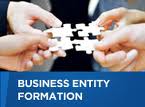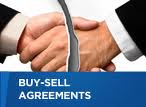When a business that sells or leases goods at retail owes sales taxes to the California Board of Equalization (BOE), the buyer of the business can be responsible for paying the BOE the amount owing if the seller does not pay them.
The liability applies to any person who is a successor or assignee of someone who sells out his business or stock of goods or quits the business, not just a buyer. This post assumes that the purchaser is buying assets from someone selling his business or at least selling all his inventory.
Under the law, unless the seller produces a certificate from the BOE stating that no amount is due, the purchaser must withhold enough money to cover the amount owing by the seller. If the purchaser fails to do that, the purchaser will be personally liable to the BOE for paying the amount due from the seller. These obligations are imposed on the buyer by Revenue & Taxation Code sections 6811 and 6812.
The buyer’s liability is limited to the purchase price of the assets acquired. Thus, if a seller’s liability to the BOE is $100,000 and the business is sold in an arm’s-length transaction for $12,000, the buyer is only liable to the BOE for $12,000. But that’s $12,000 more than the buyer was expecting!
How to avoid this pitfall? The purchaser can submit a written request to the BOE for a certificate of tax clearance. The purchaser of a business will be released from the obligation to withhold money from the purchase price if the purchaser obtains a certificate from the BOE stating that no taxes, interest, or penalties are due from the seller. This is customarily referred to as a tax clearance certificate.
The BOE has 60 days to issue a tax clearance certificate. The failure to issue a tax clearance certificate 60 days of the date the BOE receives the written request releases the buyer (assuming the sale has not already closed). Obviously, if a statement indicates that money is due the BOE, the buyer should make sure it is paid.
To avoid delay, the buyer (or escrow company) should request a tax clearance certificate as soon as possible.
If the business has more than one location and the purchaser is buying one or more locations (but not all), the purchaser should request a clearance for each location. If the business has more than one location and the purchaser is buying all the locations, only one clearance is needed.
Whether or not the BOE issues a tax clearance certificate, the seller remains liable for any amount due to the BOE.
There is no need for a tax clearance certificate if the buyer is buying stock of a corporation (or a membership interest in an LLC) because the underlying assets remain owned by the entity and are not transferred to the buyer. The entity remains liable for its obligations to the BOE.
For information about Franchise Tax Board Tax Clearance Certificates, see https://richardburtlaw.com/blog/franchise-tax-board-tax-clearance-certificates/.
For information about Employment Development Department Tax Clearance Certificates, see https://richardburtlaw.com/blog/edd-tax-clearances/




